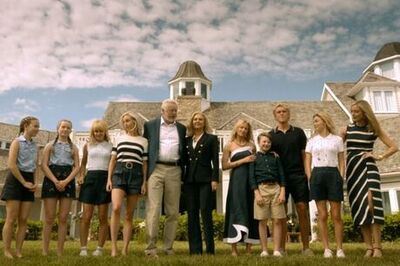
views
Kolkata: The Bharatiya Janata Party (BJP) is seemingly looking to ride the Citizenship (Amendment) Bill to power in West Bengal when assembly elections take place in 2021. The party played the ‘refugee card’ successfully in the Lok Sabha polls this year. And BJP chief Amit Shah appears to repeat the strategy to secure the confidence of the nearly 40-45 percent Matua voters in about 70 assembly segments by wielding the Citizenship (Amendment) Bill, or CAB.
The legislation is a long-pending demand of refugees in the state – many of them from the Hindu Matua community – who migrated to India from Bangladesh after 1971. They have voting rights in West Bengal, but are not ‘Indians’ because, according to Article 6 of the Constitution, anyone who entered India from East or West Pakistan after July 19, 1948 must apply for citizenship, and the year 1971 automatically falls under this rule.
Amit Shah, the union minister of home affairs, said at a public function in Kolkata on October 1 that the Narendra Modi government would first amend the existing citizenship norms – by passing the CAB – before it implements a nationwide National Register of Citizens (NRC) to identify infiltrators.
“Mamata Banerjee is saying that lakhs of Hindu refugees will be thrown out of the country. I have come here to assure all my refugee brothers that there is no need to worry as the central government will not force them out,” media reports quoted Shah saying.
“I want to assure all Hindu, Sikh, Jain, Buddhist and Christian refugees that you will not be forced to leave India. Don’t believe rumours.”
Shah’s bid to clarify the issues of NRC and Citizenship Bill came after Bengal’s ruling Trinamool Congress blamed the BJP for 11 deaths in the state in recent days allegedly linked to anxiety over the counter-infiltration exercise that has so far only been carried out in Assam.
Refugees, particularly the Matuas, played a part in about 10 West Bengal constituencies out of the 18 bagged by the BJP in the 2019 parliamentary polls. The seats won by the party are Cooch Behar, Alipurduar, Jalpaiguri, Raiganj, Balurghat, North Malda, Ranaghat, Bangaon, Burdwan-Durgapur, Asansol, Darjeeling, Barrackpore, Hooghly, Jhargram, Midnapore, Purulia, Bankura and Bishnupur.
Of these, the Matuas were a factor in the first ten. Now, these seats combined consist of nearly 70 assembly segments and those are the regions the BJP is looking at to reach the magic figure of 148 – out of total 294 elected and one nominated members – in the 2021 assembly elections.
The BJP MP from Bangaon, Shantanu Thakur, said, “The Citizenship (Amendment) Bill will bring back the lost dignity of refugees in Bengal and we will knock on each and every door in the state to clear the confusion over this. TMC is misleading the people and creating panic over NRC.”
The BJP has made successful inroads in Bengal’s tribal areas, including Jangalmahal, which comprises nearly 40-45 assembly segments. And, with a presence in Matua-dominated areas, forming 70 assembly segments, the party is in a strong position in about 100-105 constituencies in Bengal, ready to take on chief minister Mamata Banerjee’s TMC.
This was precisely one of the reasons why, Prime Minister Narendra Modi, employing the Citizenship (Amendment) Bill, kicked off his campaign in Bengal on February 2 near the Matua ‘headquarters’ at Thakurnagar under the Bangaon Lok Sabha constituency that was later won by the BJP’s Shantanu Thakur.
At the time, Modi said, “During Partition, people from Afghanistan, Bangladesh and Pakistan fled amid communal violence. Sikh, Hindu, Christian, Parsis faced grave atrocities. Now you tell me, after so many years, don’t you think they have every right to live with dignity here in India? Therefore, we brought this Citizenship (Amendment) Bill. But I would like to ask Mamataji’s stand on this. I would like to assure you (the Matua community) that our government is with you on this issue.”
According to Dr Mohit Kumar Ray, chief of the BJP’s refugee cell, nearly 10 million people migrated from Bangladesh to India around Partition and a major influx was noticed between 2001 and 2011. “These statistics are based on research done by a Bangladesh economist,” he said. “Studies also suggest that every day, on an average, 748 people slip into India from Bangladesh and about 85 per cent of them settle in Bengal. This is alarming and no one is saying anything about it. We feel that this Citizenship (Amendment) Bill will certainly give long-pending rights to the refugees and empower our government to take stern action against the illegal immigrants.”
The refugees, particularly the Matuas, were a major political force behind Mamata Banarjee in the 2011 assembly polls when she ousted the state’s Left Front government after 34 years.
In the 2014 Lok Sabha polls and 2016 assembly elections, the TMC won big with support from influential Matua leader Binapani Devi Thakur, who died on March 5 this year.
However, the winds of change were blowing in the 2019 Lok Sabha polls, when the BJP managed to snatch seats from the TMC using the citizenship issue.
Trinamool leader Colonel Diptanshu Chaudhary (retd), said, “The BJP is playing a political card through the Citizenship (Amendment) Bill in Bengal. They want to use refugees, who dominate in nearly 65 assembly constituencies of Bengal, as their vote bank. The most unfortunate part is they are instilling fear among Muslims.”
Leaders from both the TMC and BJP, who did not wish to be named, acknowledged that refugees, and mainly the Matuas, may hold the key to the outcome of the 2021 assembly polls.




















Comments
0 comment